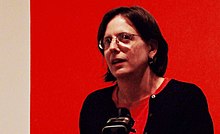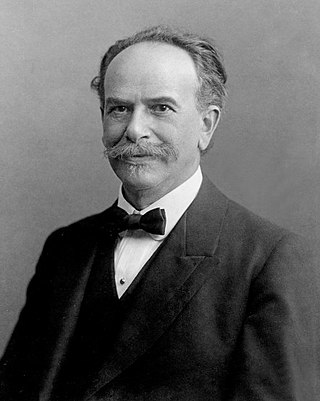
Franz Uri Boas was a German-American anthropologist and a pioneer of modern anthropology who has been called the "Father of American Anthropology". His work is associated with the movements known as historical particularism and cultural relativism.
Michael Lawson Bishop was an American author. Over five decades and in more than thirty books, he created what has been called a "body of work that stands among the most admired and influential in modern science fiction and fantasy literature."
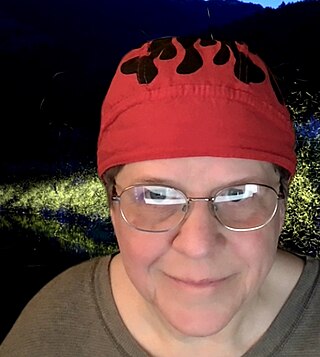
Nina Kiriki Hoffman is an American fantasy, science fiction and horror writer.

Boasian anthropology was a school within American anthropology founded by Franz Boas in the late 19th century.

Carol Emshwiller was an American writer of avant-garde short stories and science fiction who won prizes ranging from the Nebula Award to the Philip K. Dick Award. Ursula K. Le Guin has called her "a major fabulist, a marvelous magical realist, one of the strongest, most complex, most consistently feminist voices in fiction." Among her novels are Carmen Dog and The Mount. She also wrote two cowboy novels, Ledoyt and Leaping Man Hill. Her last novel, The Secret City, was published in April 2007.

Elizabeth Hand is an American writer.
The Science Fiction Research Association (SFRA), founded in 1970, is the oldest, non-profit professional organization committed to encouraging, facilitating, and rewarding the study of science fiction and fantasy literature, film, and other media. The organization’s international membership includes academically affiliated scholars, librarians, and archivists, as well as authors, editors, publishers, and readers. In addition to its facilitating the exchange of ideas within a network of science fiction and fantasy experts, SFRA holds an annual conference for the critical discussion of science fiction and fantasy where it confers a number of awards, and it produces the quarterly publication, SFRA Review, which features reviews, review essays, articles, interviews, and professional announcements.
Strange Horizons is an online speculative fiction magazine. It also features speculative poetry and non-fiction in every issue, including reviews, essays, interviews, and roundtables.
Tim Pratt is an American science fiction and fantasy writer and poet. He won a Hugo Award in 2007 for his short story "Impossible Dreams". He has written over 20 books, including the Marla Mason series and several Pathfinder Tales novels. His writing has earned him nominations for Nebula, Mythopoeic, World Fantasy, and Bram Stoker awards and has been published in numerous markets, including Asimov's Science Fiction, Realms of Fantasy, Orson Scott Card's InterGalactic Medicine Show, and Strange Horizons.

The Cherryh Odyssey is a 2004 collection of essays by various academics, critics and authors about American Hugo Award-winning science fiction and fantasy author, C. J. Cherryh. It was edited by author and academic, Edward Carmien, and was published by Borgo Press, an imprint of Wildside Press as part of its Author Study series. Locus Magazine put the book on its "2004 Recommended Reading List", and Carmien received a nomination for the 2005 Locus Award for Best Non-fiction book for The Cherryh Odyssey.

Judith Moffett is an American author and academic. She has published poetry, non-fiction, science fiction, and translations of Swedish literature. She has been awarded grants and fellowships from the National Endowment for the Arts and the National Endowment for the Humanities and presented a paper on the translation of poetry at a 1998 Nobel Symposium.
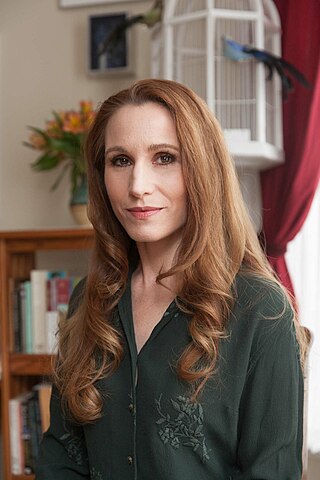
Theodora Goss is a Hungarian American fiction writer and poet. Her writing has been nominated for major awards, including the Nebula, Locus, Mythopoeic, World Fantasy, and Seiun Awards. Her short fiction and poetry have appeared in numerous magazines and anthologies, including Year's Best volumes.

M. K. Hobson is an American speculative fiction and fantasy writer. In 2003 she was a Pushcart Prize nominee, and her debut novel The Native Star was nominated for the 2010 Nebula Award. She lives in Oregon City, Oregon.
Michael Eugene Harkin is one of the leading anthropologists in the United States specializing in the ethnohistory of indigenous people of the western U.S. and Canada. He is currently professor and former chair of anthropology at the University of Wyoming, having previously taught at Emory University and Montana State University. In 2011 he was Fulbright Distinguished Chair in Cultural Studies at the Karl-Franzens University in Graz, Austria, and in 2007 he was a visiting professor at Shanghai University.
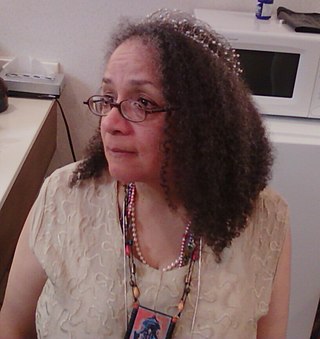
Nisi Shawl is an African American writer, editor, and journalist. They are best known as an author of science fiction and fantasy short stories who writes and teaches about how fantastic fiction might reflect real-world diversity of gender, sexual orientation, race, physical ability, age, and other sociocultural factors.
Ruth Nestvold is an American Science fiction and Fantasy writer.
Will McIntosh is a science fiction and young adult author, a Hugo-Award-winner, and a winner or finalist for many other awards. Along with ten novels, including Defenders,Love Minus Eighty, and Burning Midnight, he has published dozens of short stories in magazines such as Asimov's Science Fiction, Strange Horizons, Lightspeed Magazine, Clarkesworld, and Interzone. His stories are frequently reprinted in different "Year's Best" anthologies.
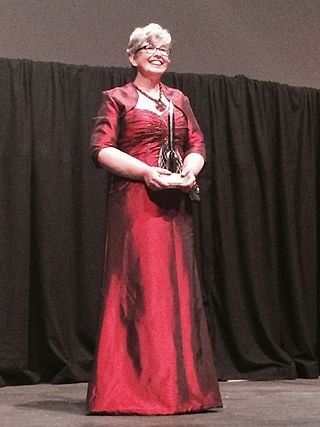
Ann Leckie is an American author of science fiction and fantasy. Her 2013 debut novel Ancillary Justice, which features artificial consciousness and gender-blindness, won the 2014 Hugo Award for "Best Novel", as well as the Nebula Award, the Arthur C. Clarke Award, and the BSFA Award. The sequels, Ancillary Sword and Ancillary Mercy, each won the Locus Award and were nominated for the Nebula Award. Provenance, published in 2017, and Translation State, published in 2023, are also set in the Imperial Radch universe. Leckie's first fantasy novel, The Raven Tower, was published in February 2019.

Nebula Awards Showcase 2005 is an anthology of award-winning science fiction short works edited by American writer Jack Dann. It was first published in trade paperback by Roc/New American Library in March 2005.
Sarah Pinsker is an American science fiction and fantasy author. She is a nine-time finalist for the Nebula Award, and her debut novel A Song for a New Day won the 2019 Nebula for Best Novel while her story Our Lady of the Open Road won 2016 award for Best Novelette. Her novelette "Two Truths and a Lie" received both the Nebula Award and the Hugo Award. Her fiction has also won the Philip K. Dick Award, the Theodore Sturgeon Memorial Award and been a finalist for the Hugo, World Fantasy, and Tiptree Awards.
